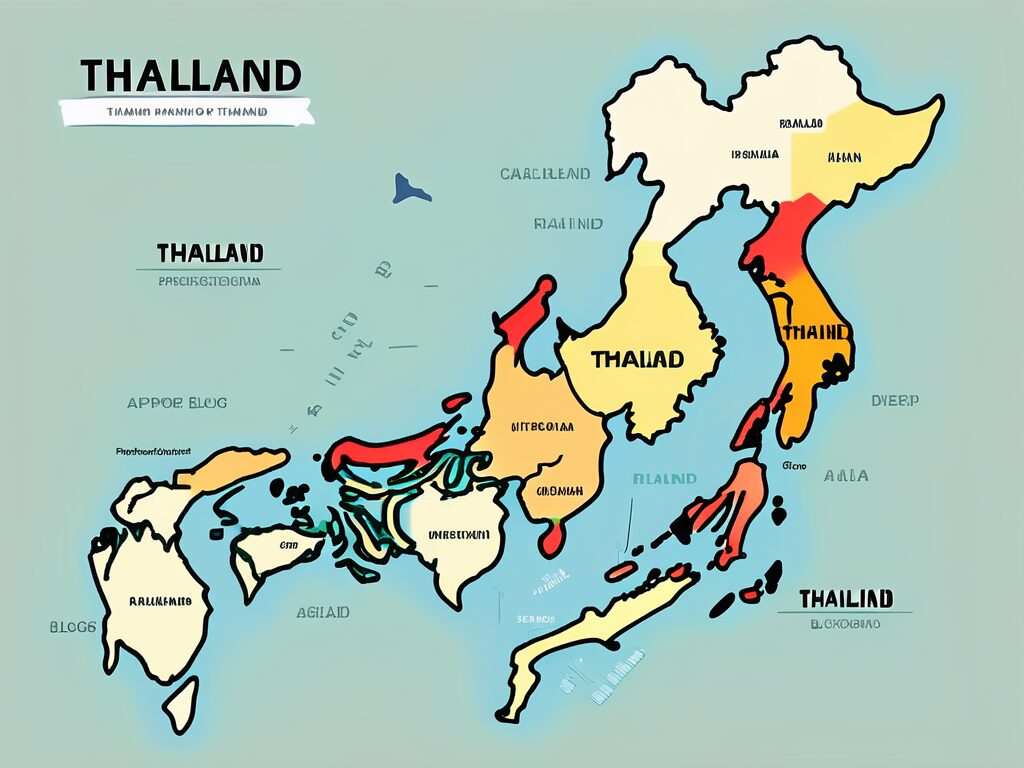When it comes to English proficiency, Thailand, much like a cricket match, has its highs and lows. The nation is known for its vibrant culture, stunning landscapes, and warm hospitality. Yet, despite its global appeal, Thailand has had a bit of a sticky wicket when it comes to English proficiency.
English, as we all know, is the lingua franca of the modern world. It’s the language of international business, academia, and the internet. So, how does Thailand fare in this global arena? Let’s delve into the nitty-gritty and find out.
The Current State of English Proficiency in Thailand
Thailand, in the grand scheme of things, has a relatively low level of English proficiency. According to the EF English Proficiency Index, Thailand ranks 89th out of 100 countries, placing it in the ‘very low proficiency’ category. This might seem surprising given the country’s heavy reliance on tourism, an industry where English is often the common language.
However, it’s not all doom and gloom. There are pockets of English proficiency within the country. For instance, in major cities such as Bangkok and Chiang Mai, English is more commonly spoken, particularly in tourist areas and international businesses. It’s a bit like finding a good cup of tea in a foreign country – not always easy, but not impossible either.
English in the Education System
The Thai education system has recognised the importance of English and has made efforts to incorporate it into the curriculum. English is taught as a second language from primary school onwards. However, the effectiveness of this teaching is a subject of debate. It’s a bit like trying to play football with a rugby ball – the intention is there, but the execution might be off.
One of the main issues is the lack of qualified English teachers. Many teachers are non-native speakers with varying levels of proficiency themselves. This can lead to a lack of confidence in teaching the language and a focus on rote learning rather than practical application. It’s a bit like learning to drive from someone who’s only ever ridden a bicycle – you might get the basics, but the finer details could be lost.
English in the Workplace
English proficiency in the Thai workplace varies greatly. In international companies and the tourism industry, English is commonly used. However, in more local businesses, English is rarely spoken. It’s a bit like comparing a bustling city to a quiet village – both have their charms, but they offer very different experiences.
Many Thai workers recognise the importance of English for career advancement. As a result, there’s a growing demand for English language courses and resources. It’s a bit like the demand for the latest smartphone – everyone wants one because they know it’s beneficial, but not everyone can afford it or knows how to use it effectively.
Improving English Proficiency in Thailand
Improving English proficiency in Thailand is a bit like trying to turn a tuk-tuk into a race car – it’s not going to happen overnight, but with the right resources and dedication, progress can be made. Here are some strategies that could help.
Investing in Teacher Training
One of the most effective ways to improve English proficiency is to invest in teacher training. This could involve providing scholarships for teachers to study abroad, offering in-service training, or recruiting native English speakers. It’s a bit like upgrading your cricket bat – you’re going to get better results with a higher quality tool.
However, this strategy requires significant investment and long-term commitment. It’s not a quick fix, but rather a slow and steady approach. It’s a bit like planting a tree – you won’t see results immediately, but with time and care, it will grow and flourish.
Emphasising Practical Application
Another strategy is to shift the focus from rote learning to practical application. This could involve more speaking and listening activities, real-world tasks, and interactive lessons. It’s a bit like learning to cook by actually making a meal rather than just reading a recipe – you’re going to learn more by doing.
This approach requires a change in mindset, both from teachers and students. It’s a bit like switching from driving on the left to driving on the right – it might feel uncomfortable at first, but with practice, it becomes second nature.
Conclusion
English proficiency in Thailand is a complex issue with no easy solutions. However, with the right strategies and resources, improvements can be made. It’s a bit like a cricket match – there might be some difficult overs, but with determination and skill, victory is possible.
So, whether you’re a teacher, a student, or just an interested observer, keep an eye on Thailand’s English proficiency. It’s a fascinating topic that’s sure to evolve in the coming years. And who knows? Maybe one day, Thailand will be hitting sixes in the global English proficiency league.
Elevate Your Teaching Career with IPGCE
Are you inspired to be part of Thailand’s journey towards English proficiency excellence? Embrace the opportunity to enhance your qualifications and career prospects with the International Postgraduate Certificate in Education (iPGCE). Join a community of educators who have seen a 50% increase in interview callbacks and a 45% boost in promotion rates. Experience the transformative power of the UK’s #1 Teacher Training Course, designed for working teachers seeking to balance professional development with their commitments. Don’t let inadequate credentials or isolation from professional communities hold you back. Join the iPGCE program today and hit a six in your teaching career!

